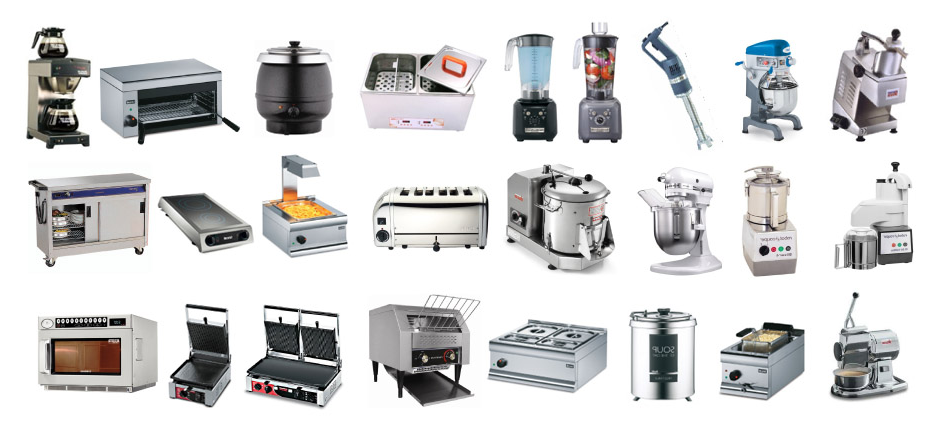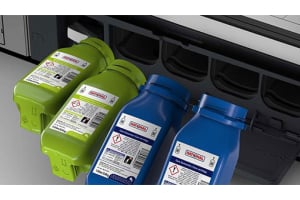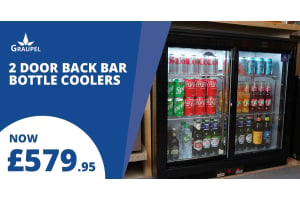
It is common practice for many businesses to opt out of buying commercial catering equipment and go for the cheaper domestic appliances to save money. However, these “budget buys” don’t always turn out as expected, often resulting in unexpected costs for premature replacements when equipment functions poorly or malfunctions unexpectedly.
This article looks at the two most common issues when buying domestic appliances for your business and why they might lead you to pay out more than you initially expected.
Domestic Warranties
You will find that many domestic appliances do not come with a warranty that truly safeguards against breakdown. Most only offer the statutory minimum requirement of a refund.
Even in situations where a domestic appliance does offer a warranty for repair or replacement, it will almost certainly not cover the use of that appliance in any commercial premises.
That’s because manufacturers have no idea of what level of use a domestic machine will be subject to outside of its typical environment. Remember, household appliances are built for regular family use, of the “average” family.
In a commercial setting, even where use would not necessarily be considered “heavy duty”, appliances are subject to multiple users where they:
- May not be familiar with the appliance.
- Have little regard for the maintenance and care of the appliance.
- Use the appliance more frequently than it’s intended daily activity.
These factors lead to added strain on the appliance resulting in the likelihood of consistent breakdowns; which most likely won’t be covered by a labour warranty, or even if they are, the domestic warranty won’t hold up in the commercial setting.
This means you must invest in another domestic appliance.
Medium Duty Use
Commercial catering equipment has domestic appliances beat over the quality of materials and components. They also generally come with a range of built-in features to aid maintenance and ensure efficient operation.
While domestic appliances often beat commercial equipment on price; the products lifetime will be significantly shorter than the commercial equivalent, resulting in less value-for-money.
Case Study Example:
Domestic Russel Hobbs Under Counter Fridge (£149.99) Vs. Interlevin ARR140S Undercounter Commercial Fridge (£286.00)
A domestic fridge like the Russel hobs has a door and compressor designed for its intended use case; the “typical family” who only open the door several times a day. Comparatively the Interlevin fridge features a much more powerful compressor to maintain a safe temperature, even when the door is opened and closed hundreds of time a day.
If we imagine a scenario such as a staff breakroom or canteen, where the fridge is opened frequently and by many different people, it’s quite clear to see which one is better suited. It is also quite clear to see why the domestic unit will need to work over-time to maintain a cold temperature, which in turn may lead to its premature failure
Also, unlike with the Russel Hobbs, the Interlevin features an LCD temperature display for improved health and safety and full stainless-steel construction for added durability.
The Russel Hobbs Fridge does come with a “3 years breakdown guarantee”, however, this would be invalidated as states in its IPD (Insurance product document) that the warranty does not cover the use of the domestic appliance in a commercial premise.
What Classes as A Commercial Premise?
Generally, a building that is listed as a business address, or that a business is operated from, will be considered a commercial use situation. For example:
- Pubs (including any on-site accommodation)
- Offices
- Industrial Units
- Working farms (including on-site/adjacent residences)
- Bed & Breakfast Locations
- Rented Properties
- Hotels
- Restaurants
- Nurseries
- Schools
- Nursing homes







